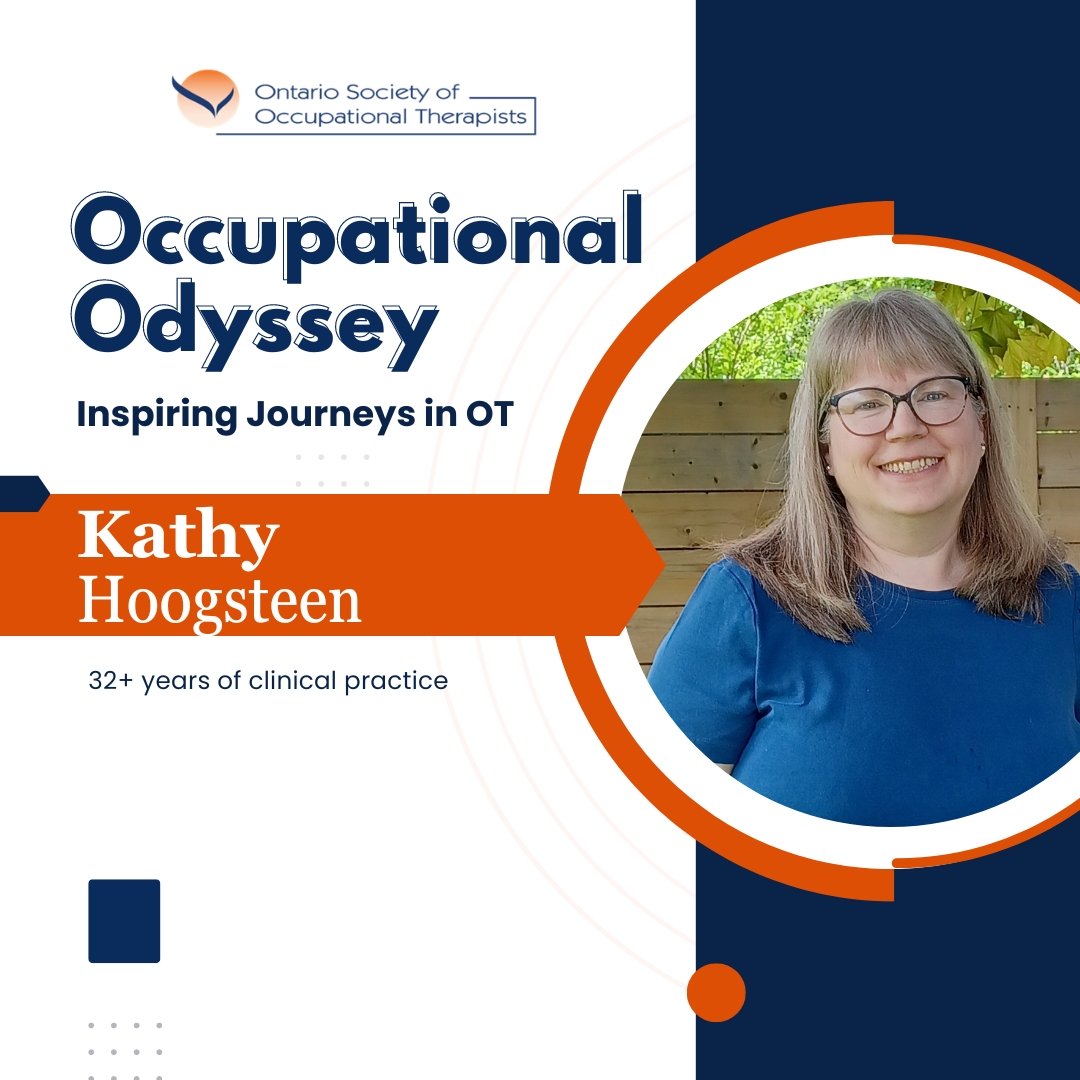Kathy Hoogsteen

When you hear words like “outstanding”, “excellent”, and “remarkable” used to describe occupational therapists (OTs) and their accomplishments, you think of those who have become managers, directors, business owners, academics, researchers, and world-renowned speakers in their fields of expertise. I want to represent those of us who have spent their entire careers providing frontline care. It’s not as flashy but hopefully, it can be viewed as inspiring differently.
I graduated from Queen’s University with a BSc in occupational therapy in 1992. The early years of my career were a time of learning, growth, and skill-building. I started my career at a small community hospital working with inpatients and outpatients across medical, surgical, chronic and intensive care units. After a few years, I transitioned to working in the community. I worked in a home care center in Halton and later moved to Muskoka. During the transition to Ontario’s Community Care Access Centers (CCACs), there were no agencies in Muskoka. I submitted a Request for Proposal to secure my territory, leading into private practice. It was a whole new world!
In 2000, my family moved back to the greater Toronto-Hamilton area and Hamilton Health Sciences hired me. I have spent the past 24 years in the fast-paced acute care environment, in the cardiovascular program. To me, there is immense value in staying in one place and building expertise within a team. An amazing thing about occupational therapy is that you can work in the same place for 20 years and never feel bored. One of the things I love most about our profession is that every day is different! I continue to learn and grow in the profession each year, learning from my colleagues, my patients, their families, and my students.
Beyond my impact on my patients’ lives, I believe my biggest contribution to our profession is my dedication to student education. This summer marks a milestone as I mentor my 50th McMaster student! Each student brings unique perspectives, insights, questions, enthusiasm and optimism. I believe that in the past 25 years students, and their way of learning, have not changed significantly. However, now they come to placements with a better understanding of the profession and a sense of professional identity. This may be due to the competitive admissions process that requires them to communicate what occupational therapy is and why they want to pursue it as a career.
In my perspective, what has changed is not the students, but their curriculum, with updated theories, models, and competencies. As preceptors, we are compelled to remain current to engage with our students on these topics. It is a great way to maintain our lifelong learning. In this process of mentoring students, I am constantly reminded of how grateful I am to be an Occupational Therapist.